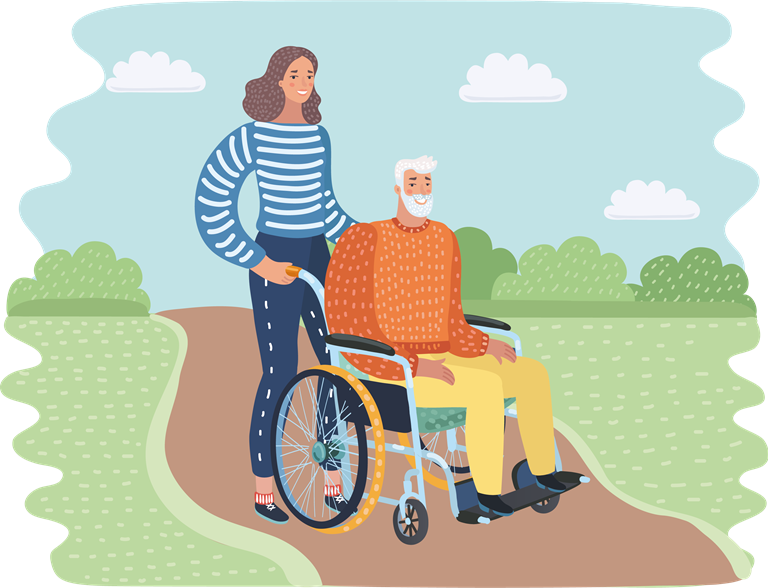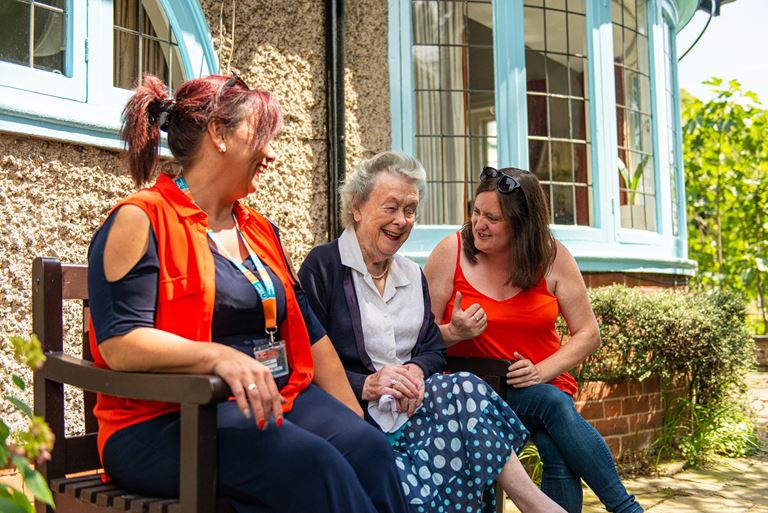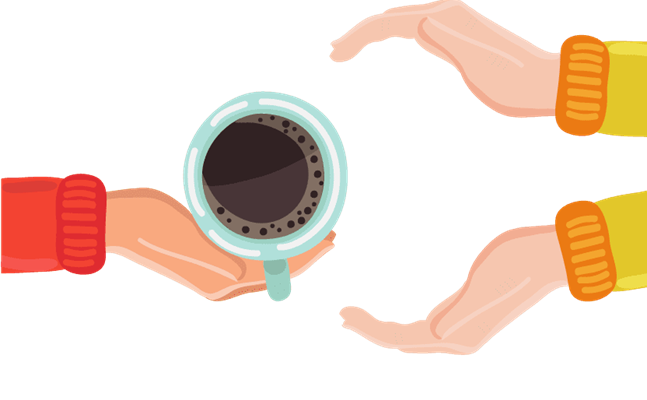
Stroke Rehabilitation and Stroke Homecare in Hemel Hempstead
Right at Home Hemel Hempstead stroke homecare services can help those recovering to live an independent life.
- Hemel Hempstead
- Our Services
- Specialist Care
- Stroke Rehabilitation
What is a stroke?
A person experiences a stroke when the blood flow to the brain is cut off, either due to a blockage or a bleed in the brain. When the brain is starved of blood, it can’t access any essential nutrients or oxygen. A lack of blood in the brain often results in brain cells and parts of the brain being damaged or destroyed.
What happens after a stroke?
The consequences of a stroke vary according to the individual and how healthy they were at the time of the stroke. The impact can also depend on the location in the brain where the stroke struck, its intensity and the extent of the damage caused.
Prolonged effects of a stroke can include: cognitive problems, communication problems, physical problems, depression, incontinence, pain, and fatigue.
Speak to the Hemel Hempstead Right at Home office to discuss how our homecare services can help.
How can Right at Home Hemel Hempstead help with your post-stroke care at home?
Life after a stroke is different for every individual. Most people see some level of recovery during their stay in hospital. Many continue to recover and regain skills by following a care plan for stroke survivors at home.
Care plans following a stroke require input and development from a specialist stroke recovery team in a local hospital.
At Right at Home Hemel Hempstead, our homecare for stroke patients can include:
- helping with mobility
- continence care
- managing and administering medication
- household tasks
- transport
- shopping
Importantly, our skilled CareGivers can also support Clients with their recovery and rehabilitation by assisting them to maintain their exercise routines and promoting a healthy lifestyle.
Right at Home Hemel Hempstead also has a Clinical Specialist, based at National Office, who is available to assist CareGiver teams across the network when caring for a stroke survivor.

Ross F | Son of Client"I have found this care provider very helpful and adaptable to different needs. They have been caring for our mother for around 2 years now and have been very good at keeping things going and meeting her needs. The manager is very knowledgeable and her firm but fair approach is just what is needed at times. We can only thank you for all your efforts and continuing care."
Advice for preventing strokes
Whilst we cannot predict when a stroke may occur, maintaining a healthy lifestyle can reduce the risk of requiring stroke rehabilitation and care as we age.
The risk of suffering a stroke has several contributing factors. These include, but are not limited to:
- Blood pressure
- Genetic factors
- Age
- Diet
- Alcohol consumption
- Smoking status
- Fitness level
- Pre-existing medical conditions
For some of these factors, there’s not a lot that you can do - we can’t change our genes. But it is well-known that maintaining a healthy, low alcohol, smoke-free lifestyle can reduce the risk of a stroke.
It’s important to identify high blood pressure. Ask your GP to check your blood pressure regularly. Doctors can then monitor your status, prescribe medication if required, and suggest lifestyle changes to lower blood pressure to normal levels. Unchecked, high blood pressure is a high contributing factor.
Help with hypertension (high blood pressure)
If you are diagnosed with high blood pressure, it’s essential to keep it under control.
The best strategy for controlling and preventing high blood pressure is to begin with lifestyle changes. For seniors, this often involves a combination of light exercise, a healthy diet and medication.
At Right at Home Hemel Hempstead, our CareGivers can devise a customised hypertension programme should you need one. We’ll help to promote a healthier way of life, including:
- Development of a light exercise schedule
- Coordination of a healthy meal plan
- Support with shopping
- Meal preparation
- Medication reminders/set-up/administration
Making lifestyle changes can be fun and sociable, at community groups like:
FAQs about Right at Home Hemel Hempstead’s after-stroke care at home services
What is involved in stroke rehabilitation?
Strokes can vary in severity but often cause long-term effects. Life after a stroke is a long period of recovery and adjustment. During this period, our team can help Clients to relearn familiar skills and possibly learn some new ones with our stroke care plans.
When it comes to caring for a stroke survivor, there are many approaches. Your care plan will depend on how your body has been affected by a stroke. Standard care plans will include physical, cognitive and emotional rehabilitation.
Through our stroke rehabilitation plans, we strive to increase our Clients’ independence and allow them to get back to normal life.
How long does stroke rehabilitation take?
Unfortunately, there is no exact timeline for stroke rehabilitation. The length of your loved one’s rehabilitation is based on the severity of the stroke and any related complications.
Some stroke survivors recover quickly, but most will rely on some long-term treatment. This can last months or years, at varying levels of intensity.
The type of rehabilitation you need will change - as you progress, relearn and develop new skills. Having a support system, including family members and CareGivers in Hemel Hempstead, can be paramount to ensuring that you are on the right track.
What is the cost of in-home care for stroke survivors?
The price of our stroke homecare and rehabilitation will depend on the Client’s specific needs and the number of hours of care provided. In order to deliver effective care, we always recommend a minimum visit of one hour.
To find out more about the cost of care, please get in touch with the Right at Home Hemel Hempstead team.
Hypertension/stroke information and resources in Hemel Hempstead
- Stroke is the third leading cause of death in the United Kingdom
- Up to 80 percent of strokes are preventable
- For a great resource on living with hypertension, visit the British Hypertension Society
- For more information on strokes, visit The Stroke Association
Browse our Information Hub for guidance on Health Awareness.
Download Brochure
Thank you for your interest in Right at Home.
Please download our brochure to find out more.
;)
Our Trusted Services
Families just like yours, trust and rely on Right at Home to provide high-quality homecare services for their loved ones. We offer a wide range of services to support Clients to remain living safely and independently in the comfort of their own home.
How to Prepare for Homecare
;)











